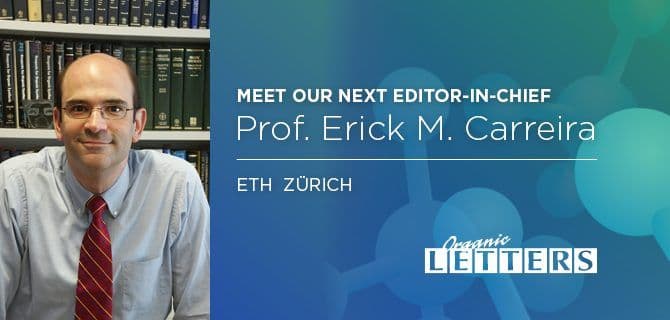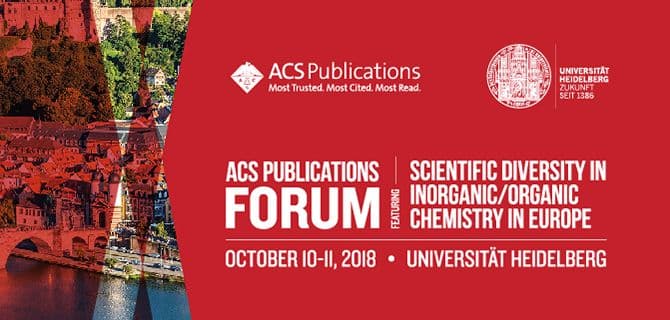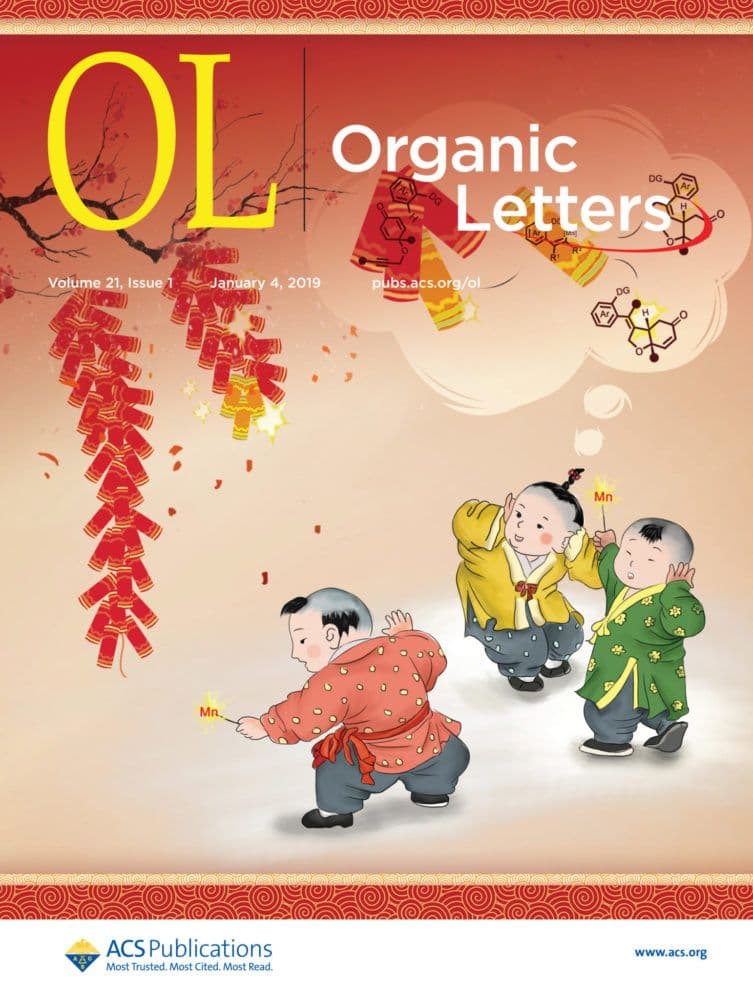ACS Publications announced that the next Editor-in-Chief of Organic Letters will be Professor Erick M. Carreira of the Laboratory of Organic Chemistry at ETH Zürich. He has been an Associate Editor with the journal for 18 years and will succeed its inaugural Editor-in-Chief, Professor Amos B. Smith, III, who is stepping down at the end […]

ACS Publications announced that the next Editor-in-Chief of Organic Letters will be Professor Erick M. Carreira of the Laboratory of Organic Chemistry at ETH Zürich. He has been an Associate Editor with the journal for 18 years and will succeed its inaugural Editor-in-Chief, Professor Amos B. Smith, III, who is stepping down at the end of 2018.
“We are delighted to welcome Professor Erick Carreira in his new role as editor-in-chief of Organic Letters,” James Milne, Ph.D., senior vice president, Journals Publishing Group at ACS Publications, said in a statement. “Professor Carreira’s extensive editorial and publishing experience with the journal, as well as his scientific expertise in the areas of organic synthesis and natural products, will ensure the journal continues to develop and be held in the highest regard over the years ahead.”
Meet Professor Carreira at Heidelberg University
Professor Carreira’s first event as Organic Letters Editor-in-Chief-to-be will be the ACS Publications Forum: Scientific Diversity in Inorganic/Organic Chemistry in Europe at the University of Heidelberg, October 10-11. The event is co-organized by Organic Letters, Inorganic Chemistry, The Journal of Organic Chemistry, and Organometallics. It is free to attend, but you must register in advance.
The Forum will feature talks by European researchers covering the broad span of topics under the umbrella of organic, inorganic, and organometallic chemistry. Attendees will have a chance to meet the speakers and organizers, including Professor Carreira, and learn more about research, publishing, and the global scientific community.
“I look forward to my visit to Heidelberg, a historically important landmark that houses one of Germany’s oldest and most reputable universities,” Professor Carreira said. “It is always stimulating to visit Germany, as it is a powerhouse of organic chemistry!”

An Interview with Professor Erick M. Carreira
I connected with Professor Carreira recently to learn more about him, his research, his history with Organic Letters, and his thoughts on the global organic chemistry community. These are the highlights of our conversation.
You have a long history with Organic Letters, what do you love about the journal and why did you want to be its next Editor-in-Chief?
As an avid reader of Organic Letters, I can always count on issues packed with the highest quality science, spanning a range of exciting new developments. As an associate editor, I am well aware of the hard work that goes into curating the content, ensuring that the science is timely and relevant. Importantly, anyone who has published in Organic Letters knows that in parallel to the traditional refereeing process, there is a process of careful checking of the experimental/supplementary sections for accuracy and completeness.
Having published in a variety of venues, I know that the OL normal is not common. Yet, it is the integrity and soundness of the data accompanying every manuscript that ultimately determines its staying power. In sum, what I love about Organic Letters: The latest cutting-edge organic chemistry with the highest-quality experimental data.
My mentors and heroes in chemistry have always underscored that the responsibility of a scholar/scientist includes doing great science along with serving the community. When learning about the scientific process, the generation of a hypothesis, experimental design/execution, observation, and analysis are usually given top billing. Yet the dissemination of science is just as important if the work is to have an impact.
Publishing is a rapidly evolving endeavor, coupled with the emergence of new technologies and various societal developments. It is my goal to maintain Organic Letters as the premier platform for publishing first-class organic chemistry. Cognizant of the pluses and minuses of the rapidly evolving landscape, I hope to manage the journal as it adapts to new developments.
You were born in Cuba, studied and began your career in the U.S., and now work in Switzerland. How have your international experiences helped you in your career, especially as we’ve seen the mobility of science and society increase across cultures and continents? How have these changes helped to improve organic chemistry?
As an active scientist, one must always remain ready to embrace uncertainty and manage the unexpected. Likewise, uncertainty and the unexpected are characteristics one must deal with as one encounters new cultures.
The fact that I am a first-generation immigrant has made a big difference in ensuring enriching, stimulating professional experiences. I was six years old as a newly minted immigrant in the U.S. as a consequence of decisions made by my parents. Later in life, as an adult, I chose to be an immigrant in Switzerland. In addition to keeping me on my toes, it facilitates all sorts of personal connections to the many around the world who choose to study and live outside of their comfort zone, away from their home country. Scientifically, it also encourages collaborative research well beyond one’s borders.
Although science is fairly uniform in its execution globally, there are differences in the local culture of science that are inevitably coupled to history, available resources, and nonscientific cultural context. No one culture has a monopoly on the best way to practice science! As someone who has a multitude of experiences, identifying the best in each hopefully results in an approach to teaching and research that amalgamates the best.
What is your group working on now? How does that work connect with the broader body of work being carried out by the global organic chemistry community?
I have always considered myself a generalist, who works in a number of themes at the core of organic chemistry. This includes catalysis, methodology, target-oriented synthesis, medicinal chemistry, and—collaboratively—chemical biology. The first three themes are focused on fundamental aspects of organic chemistry while the last two provide avenues for implementing the core tools of organic chemistry to solving problems well beyond the discipline. The breadth of research topics in my group connects my group to a wide network of scientists globally.
When you’re not teaching and doing research—and working as a journal editor or reviewing papers—how do you spend your time? What are your passions outside of organic chemistry and your workday?
Outside my workday, I prioritize my family, which includes my spouse, Andrea, and two children, Christopher and Isabel. They enrich my life with a different set of daily uncertainties and unexpectedness, while at the same time providing a bedrock of support. What remains of the day after attending to the various recitals, flag football games, ballet performances, along with tennis, violin and guitar classes, and parent-teacher meetings, I split between reading (fiction), learning how to play piano, gardening, and the zoo we call home.
I have always loved gardening and animals, and, while growing up in Chicago we lacked resources, time, and space to fulfill my wishes, I now compensate with four dogs, a cat, 15 birds of various feathers, two aquaria, a bearded dragon (as well as the crickets necessary to keep it happy), and a rabbit, along with a collection of bonsai.
